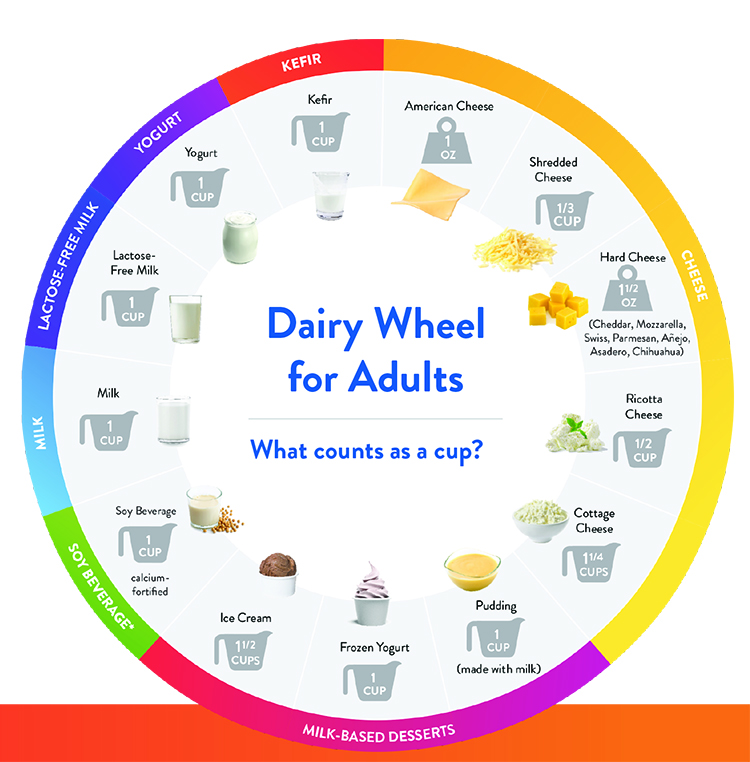Kick off June Dairy Month by reacquainting yourself with all the benefits dairy has to offer. After all, it does a body good!
Healthy eating patterns that include low-fat or fat-free dairy foods are associated with reduced risk for several chronic diseases, including cardiovascular disease and type 2 diabetes. In addition, dairy foods provide calcium and protein, which are particularly important for accruing peak bone mass in early adulthood.
Dairy’s Unique Contributions
For many, adulthood becomes about routines – creating them and sticking to them to juggle an ever-growing list of home, family and work responsibilities.
To live their best life, adults are seeking ways to improve their diets to support all the demands thrown their way. Enjoying dairy foods is one way to support healthy eating throughout adulthood.
Inflammation is a hot topic. Research has consistently shown that milk, cheese and yogurt do not cause inflammation and some studies have shown dairy foods may even be beneficial in reducing chronic inflammation.
A healthy immune system is essential to wellness. The nutrients in dairy foods play an important role in immunity. Milk, for example, provides vitamins A and D, protein, zinc and selenium.
Special Considerations
It is more than a “gut feeling.” Fermented dairy foods like yogurt with live cultures, hard cheeses and kefir can benefit gut health by helping to maintain gut barrier function. They also contain unique bioactives, due to the fermentation process, that may improve health.
Lactose intolerant? While it is a condition to take seriously, the good news is most people with lactose intolerance can handle small amounts of lactose. There are many solutions to try that may help people continue to enjoy the great taste and nutritional benefits of dairy foods without discomfort. For example, working small amounts into meals or choosing foods with minimal amounts or no lactose, like yogurt, hard cheeses (such as Cheddar) or lactose-free milk, are strategies to incorporate dairy foods in a low-lactose or lactose-free eating style
Recommended Daily Dairy Servings
The recommended daily servings of dairy is 3 cups. Check out this Dairy Wheels to see what counts as a cup.

Milk, yogurt and cheese are foundatioal foods that help nourish people throughout life. Dairy foods, including lactose-free varieties, are highly nutritious and accessible options that help fill nutrient gaps and contribute to health eating patterns. To learn more about how dairy foods help people thrive, visit USDairy.com
All information on this page, from a pdf download from Midwest Dairy Association.
